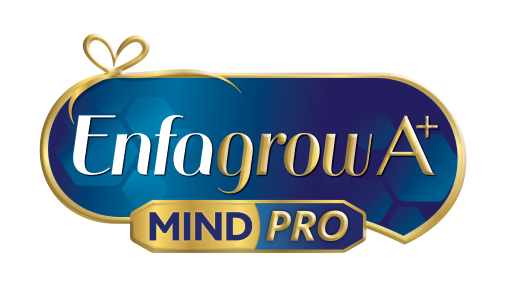
Photo from Motherhood
Making sure your toddler gets enough of the right kind of nourishment remains top of mind for all parents. Now, more than ever, having a strong immunity system is the main priority, whilst keeping them happy, curious and actively learning!

Photo from Motherhood
Proper nutrition is one way to help build strong immune systems and to promote mental development at every stage of a child’s growth. Starting early and putting in place the right foundation at the beginning will ensure improved future growth and development. At the same time, this strong foundation will serve to protect them from seasonal illness and health problems.
So, here are the top 10 things all parents should know to help build strong immune systems and mental development in their growing child!
One of the keys to mental and immunity development is ensuring your child is getting the nutrients they need.
1. The early years are the most active period for creating neural connections in the brain. In the first few years of life, more than 1 million new neural connections form every second1, which is why proper nutrition is one of the key areas during this critical period in supporting their growth and development. It is also during this period that parents start looking for ways to prepare their child for a complex and challenging world.
2. It is best to nourish your child with a wide variety of food and maintaining a balanced diet according to the food pyramid. Milk is one of the most important meal requirements for the growing up children as it is nutrient-dense which provides energy as well as high quality protein2. Considering the nutritional value of milk, the Malaysian Dietary Guidelines for Children and Adolescents 2013 recommends that children consume 2 to 3 servings of milk or milk products a day2.
3. Milk Fat Globule Membrane (MFGM) is a nutrient rich component naturally present in milk and in our brain. In 2017, MFGM complex hit headlines as the next breakthrough in children nutrition3. Studies show that MFGM consumption leads to improved emotional and behavioral regulation in young children3. It promotes the production and transmission of neurotransmitters (substances that participate in the creation of brain cell connections)4. By helping brain cells to connect, they regulate mental abilities, emotions and mood5.
4. MFGM complex plays a role in building immunity as well! In one study, consumption of MFGM enriched milk by young children was shown to have protective effect against gastrointestinal infections, producing a significant decrease in the number of short febrile episodes (symptoms of fever)3.
5. Incorporating fatty acids such as DHA, Omega 3’ and 6’ into your child’s diet provides benefits for your child’s mental development as it is shown to be associated with better reading and working memory performance6. DHA is a primary structural component of brain tissue, which plays a role in effective communication between brain cells. It is essential for mental function, including key development areas such as intellectual, motor, emotional/social and communications skills7.

Photo from Motherhood
6. DHA and MFGM are abundantly found in the brain and they work synergistically. Scientific studies shown that MFGM & DHA work together to help support mental and emotional development contributing to significantly better behaviour3. Preschool children who consumed enriched MFGM for 4 months were evaluated by their parents and were found to have better behavioural and emotional regulation compared to the controlled group children3.
7. Emotional Intelligence (EQ) plays a starring role in a child’s development too. Emotional well-being and social competence in the early years provide a strong foundation for emerging cognitive abilities and together, they are the building blocks of brain architecture1. Just like IQ (intelligence quotient), social-emotional skills such as communication, problem-solving and collaboration are just as important in adapting well in school and working effectively with others.
8. PDX (Polydextrose) and GOS (Galacto-oligosacharide) are dietary fibres that work together throughout the large intestine to foster the growth of good bacteria and promote digestive health and immune system8. Yeast Beta Glucan is known for its ability to help support the body’s natural defenses9. Research has shown that children consuming milk fortified with DHA, PDX+GOS and Beta-Glucan have been shown to have fewer episodes of acute respiratory infections (ARI) compared to children consuming unfortified milk. Furthermore, lesser children received antibiotics and recovered faster when they consumed milk fortified with DHA, PDX+GOS and Beta-Glucan10.
9. While fresh milk is still beneficial, fortified milk contains added essential nutrients such as DHA, MFGM, Vitamin A, Vitamin B12, Vitamin C, Iron and Zinc. It is a great choice in boosting your child’s natural defenses11 and ensuring their daily nutritional requirements are met.

Photo from Motherhood
10. Strong immunity and healthy mental development also mean having adequate sleep, active lifestyle and good hygiene.
References:
- Brand Architect: https://developingchild.harvard.edu/science/key-concepts/brain-architec…
- Malaysian Dietary Guidelines for Children and Adolescents, Ministry of Health, 2013 https://nutrition.moh.gov.my/wp-content/uploads/2019/07/Nutritional_Gui…
- Veereman-Wauters G et al. Milk fat globule membrane (INPULSE) enriched formula milk decreases febrile episodes and may improve behavioral regulation in young children. Nutrition. 2012;28:749-752: https://www.sciencedirect.com/science/article/abs/pii/S0899900711003741…
- Küllenberg D et al. Lipids in Health and Disease. 2012; 11(3),1=16: https://www.ncbi.nlm.nih.gov/pmc/articles/PMC3316137/
- Banjari I et al. Brain food: how nutrition alters our mood and behavior. Hrana u zdravlju i bolesti, znanstveno-stručni časopis za nutricionizam i dijetetiku, 2014; 3(1),13-21: https://hrcak.srce.hr/file/186517
- Montgomery P et al. Low Blood Long Chain Omega-3 Fatty Acids in UK Children Are Associated with Poor Cognitive Performance and Behavior: A Cross-Sectional Analysis from the DOLAB Study; PLoS ONE. 2013; 8(6): e66697. doi: https://journals.plos.org/plosone/article?id=10.1371/journal.pone.00666…
- Kuratko CN, Barrett EC, Nelson EB, Salem N Jr. The relationship of docosahexaenoic acid (DHA) with learning and behavior in healthy children: a review. Nutrients 2013;5:2777-810C: https://www.ncbi.nlm.nih.gov/pmc/articles/PMC3738999/
- Roytio,H, Ouwehand A.C (2014) The fermentation of polydextrose in the large intestine and its beneficial effects. Wageningen Academic Publishers, 5(3), 305-314: https://www.researchgate.net/publication/261742337_The_fermentation_of_…
- Volman JJ, Ramakers JD, Plat J. Dietary modulation of immune function by beta-glucans. Physiol Behav. 2008;94:276-84: https://pubmed.ncbi.nlm.nih.gov/18222501/
- Li F, Jin X, Liu B, Zhuang W, Scalabrin D. Follow-up Formula consumption in 3- to 4-Year-Olds and Respiratory Infections: An RCT. Pediatrics 2014;133:e1533-1540: https://pubmed.ncbi.nlm.nih.gov/24843061/
- The Role of Nutrition in Supporting the Immune System Relative to Coronavirus (COVID-19) :https://nutrition.org/the-role-of-nutrition-in-supporting-the-immune-sy…

